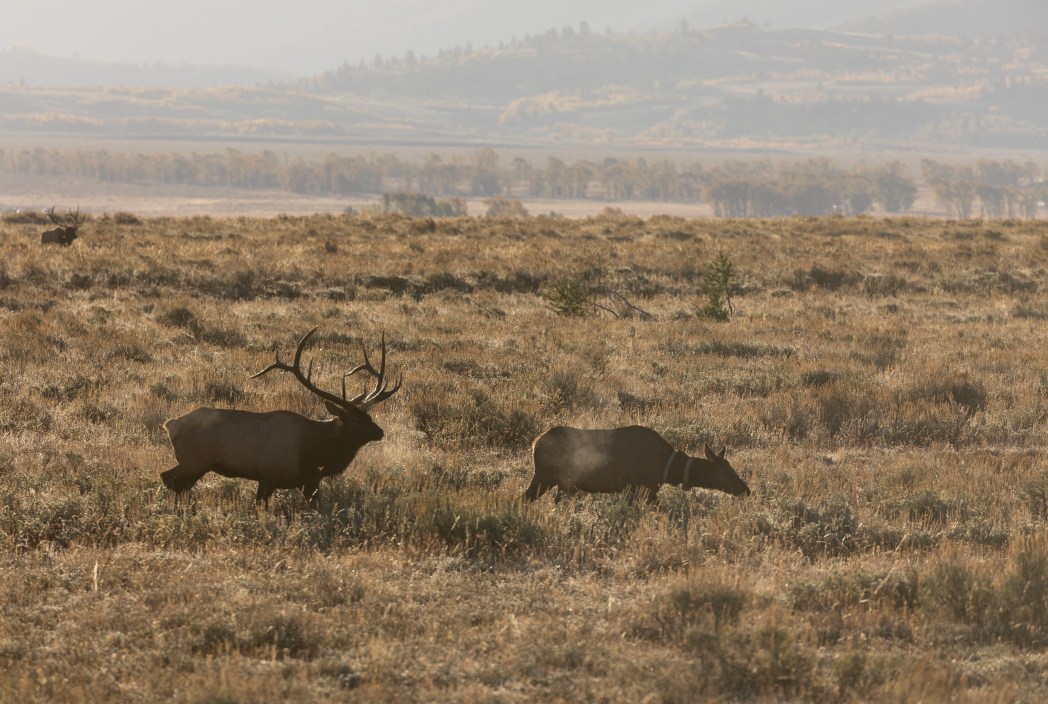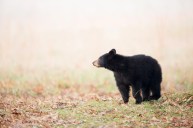In 2021, Walker Dean Erickson went on an elk and deer poaching spree across Oregon, illegally taking six deer (mule and whitetail) and eight Rocky Mountain elk, including two trophies and one trophy bull elk. This month, the now-28-year-old pleaded guilty on 22 counts, including wasting game meat, trespassing, tampering with evidence, and hunting from a vehicle.
Unfortunately for him, Oregon recently announced big efforts to clamp down on poaching within the state, as well as new state laws that allow prosecutors to elevate poaching crimes from a misdemeanor to a felony. Therefore, Erickson's spree earned him a heavy poaching penality: a felony sentencing and a hefty $75,000 fine, along with two weeks in jail for each of the next three years during elk hunting season and permanent loss of his right to purchase a hunting license.
"Elk season is now jail season," said Jay Hall, wildlife anti-poaching resources prosecutor for Oregon. Hall, who is an assistant attorney general with the Oregon Department of Justice, also told news Channel 21 KTVZ, "If [Erickson's sentencing] had occurred only a year before, before the Legislature created these felony-level poaching crimes, he would be facing only misdemeanor sentencing."
This case symbolizes the first significant application of the new sentencing guidelines passed by the Oregon legislature in 2019.
According to the Oregon Department of Fish and Wildlife, Erickson's "wildlife crime spree" included shooting two cow elk and three whitetail bucks from Dec. 13, 2020, to Jan. 3, 2021. Another alleged illegal hunting spree without valid tags was in August and September 2021, including the shooting of a trophy-size bull elk with seven antler points on each side of its head on Sept. 30. All in all, Hall says, Erickson poached six deer (including one 4x4 mule deer buck and one 4x5 whitetail buck) and eight Rocky Mountain elk (including three trophies: one 4x4, one 5x6, and one very large 7x7 bull).
Erickson was ordered to turn over the rifle and bow that were seized at his house and turn over a freezer full of meat, to be used by the Blue Mountain Wildlife center in Pendleton for its raptor rescue and rehabilitation program.
Poaching in Oregon is a big problem, and the state has stepped up with some big consequences to match.
"We want people to know that Oregonians take this seriously," said Yvonne Shaw, the Turn in Poachers campaign manager for ODFW. "We value our natural resources, and we understand that when people take fish and wildlife illegally, they're stealing from all Oregonians. They're impacting all of this for our future generations."
Oregon recorded 5,000 animal poachings just last year, but officials say that number is likely far lower than the true number of animals illegally killed.
"Many of the crimes against Fish and Wildlife happen in very rural areas," Shaw said. "It can be secluded areas out in the deep forest. It can be out on the ocean. And these are places where it's difficult to have the Oregon State Police Fish and Wildlife trooper presence ... because Oregon is a pretty big state."
Last month, Oregon launched a statewide poaching campaign to educate the public about recognizing poaching and how to report poachers through a tip hotline. The ODFW has also started offering double the reward paid to any informants who report poachers.
When lawmakers introduced House Bill 3035 in 2019, a bill to bump some misdemeanor poaching crimes to felonies, the legislation drew support from both the Oregon Hunters Association and environmental groups such as Oregon Wild and Oregon Defenders of Wildlife.
The bill passed with near-unanimous support and was further aided by complementary bills that funded more wildlife police and a special wildlife crime prosecutor who works under the Oregon Department of Justice.
The hope is that increased enforcement—combined with the state's anti-poaching awareness campaign, tip line and website—will make a significant impact on poaching numbers across the state.
READ MORE: The Worst Poaching Cases So Far in 2023




